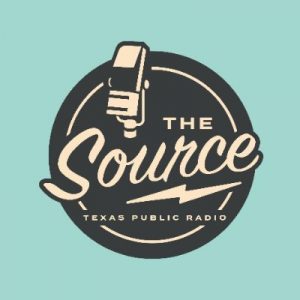On January 6, 2022 the United States will mark one year since the attack on the Capitol building, when far-right militia groups including the Proud Boys, the Oath Keepers, and Pro-Trump supporters who believed a false narrative that the 2020 presidential election was stolen through fraud forcefully made their way into the Capitol building. In the wake of the attack that left 5 people dead and roughly 140 law enforcement officers injured, the country has tried to make sense of the insurrection, the first major attack on the Capitol since 1814.
In June 2021 the House of Representatives created the U.S. House Select Committee to Investigate the January 6th Attack on the U.S. Capitol. As of this posting, the Committee is actively investigating the incident and is scheduled to begin holding public hearings in early 2022. The Committee’s investigative teams will each focus on specific areas around the insurrection, including funding, the motivation of individual actors, organizational coalitions, and former President Trump’s role and knowledge surrounding the attack. The Committee has stated that it aims to have a final report by the fall of 2022.
Around 700 people have been arrested for their alleged involvement in the Capitol insurrection. Roughly 120 defendants have pleaded guilty to charges stemming from the events. The penalties for the crimes associated with the insurrection have varied greatly, with some facing minimal to no jail time and others, like a man from Florida, being sentenced to more than five years in prison. Law enforcement officials are still searching for suspects, including a person who planted pipe bombs at the offices of the Democratic National Committee and Republican National Committee.
In a more recent development, the Attorney General of the District Columbia filed a federal lawsuit against the Proud Boys, the Oath Keepers, and individual members of these groups, alleging they were responsible for the violence of the January 6th attacks and seeking to recoup millions of dollars spent to deploy metro police to the Capitol, as well as costs related to the medical and mental health treatment officers have been receiving since the attacks occurred. Beyond restitution, the suit aims to deter future violence. Congresswoman Eleanor Holmes Norton has stated that “…This lawsuit will deter and say be prepared to spend money and defend yourself because we are coming after you.”
This week’s Current Events resources examine the aftermath of the January 6, 2021 Capitol attack. The resources shared provide context and information about some of the key events and actors involved in the insurrection and its subsequent investigations. To see additional resources, check out our initial Current Event on the topic. If you are looking for a resource that places the Capitol attack in the context of U.S. history and democracy, you may consider watching PBS’ “Preserving Democracy: Pursuing a More Perfect Union” premiering on the anniversary of the attack.
Looking for more current events resources? Sign up at our We the Teachers Educator Resource Community page, where you can find all of our Current Events, and learn about our other programs!
Essential Questions, Vocabulary & Extend the Resources:
- Why is language an important aspect when discussing the January 6th Capitol attack?
- How have the United States’ democratic institutions responded to the January 6th Capitol attack?
- What role has the judicial system played in the aftermath of the Capitol attack?
- In your opinion, has the United States done enough to deter and prepare for a similar attack to what was seen on January 6, 2021?
- How does the peaceful transfer of presidential power strengthen a democratic nation?
- In your opinion, what should the U.S. House Select Committee to Investigate the January 6th Attack on the U.S. Capitol focus its investigation on?
- In your opinion, has the response from the general U.S. citizenry been adequate to deter and prevent another insurrection?
Click here for a hardcopy of the Essential Questions & January 6th Anniversary Vocabulary
Click here for a hardcopy of the Extend the Resources handout with suggested lesson activities and extensions
Videos:
Podcasts:
The Weight of Words: How Should We Talk About What Happened At The U.S. Capitol on Jan. 6?, The Source, Texas Public Radio
What congressional investigations are revealing about the Capitol insurrection, On Point, NPR, December 15, 2021
A Capitol Police Officer Recounts Jan. 6: An Update, The Daily, December 28, 2021
The Road to Insurrection, On The Media, July 2, 2021
Background Resources:
Insurrections Old and New: Teaching Perspective on the Events of January 6, 2021, The Journal of the Civil War Era, March 9, 2021
Student Opinion: What Are Your Reactions to the Storming of the Capitol by a Pro-Trump Mob?, The New York Times
Capitol riots: Five Takeaways, BBC News
Preserving Democracy to Premiere January 6 on PBS, PBS, December 3, 2021
WashU Experts: One-year anniversary of siege on U.S. Capitol, Newsroom, Washington University, December 23, 2021
A historian Designs and Teachings an instant class about the January 6 Insurrection, Harvard Kennedy School
American Insurrection, Frontline
Recent Articles:
As the Jan. 6 attack anniversary nears, one Capitol officer fears a violent repeat, NPR, December 30, 2021
US: Lawmakers Divided Over Senate Sitting On Capitol Riot Anniversary, Republic World, December 24, 2021
Lawsuit filed against Proud Boys, Oath Keepers for January 6 Capitol attacks, Erie News Now, December 14, 2021
‘Stop the Steal’ founder told Jan. 6 committee about contacts with GOP lawmakers, Politico, December 18, 2021
Republican congressman refuses to cooperate with Capitol attack panel, The Guardian, December 21, 2021
Right-wing and liberal vigils planned in D.C. on anniversary of Capitol riot, The Washington Post, December 20, 2021
Recent Editorials:
As attack’s anniversary nears, Jan. 6 investigation reaches new level, MSNBC, December 28, 2021
3 retired generals: The military must prepare now for a 2024 insurrection, The Washington Post, December 17, 2021
Christian nationalism helped fuel Jan. 6 insurrection at the Capitol; what’s next? | GUEST COMMENTARY, The Baltimore Sun, November 4, 2021
Op-Ed: After 2021 tumult, here’s what it will take to protect American democracy, The Los Angeles Times, December 27, 2021
Lesson Plans:
Contentious Elections and the Peaceful Transition of Power, The Bill of Rights Institute
Classroom resource: Three ways to teach the insurrection at the U.S. Capitol, PBS Newshour Extra
Teaching about the January 6 Insurrection and its Impact on U.S. Democracy, Facing History and Ourselves
Fostering Civil Discourse: How Do We Talk About Issues That Matter?, Facing History and Ourselves
Teaching Resources to Help Students Make Sense of the Rampage at the Capitol, The Learning Network. The New York Times
Teaching About the Peaceful Transfer of Power, Educators for Social Change
Media & News Literacy Lesson Plans:
Media Literacy Resources – Newseum
News & Media Literacy Lessons – Common Sense
Media Misinformation, Viral Deception, and «Fake News» – University of Wyoming
Evaluating Sources in a ‘Post-Truth’ World: Ideas for Teaching and Learning About Fake News – New York Times Lessons




